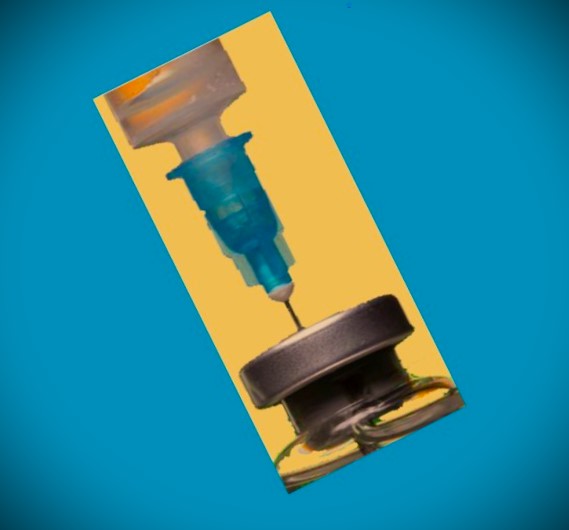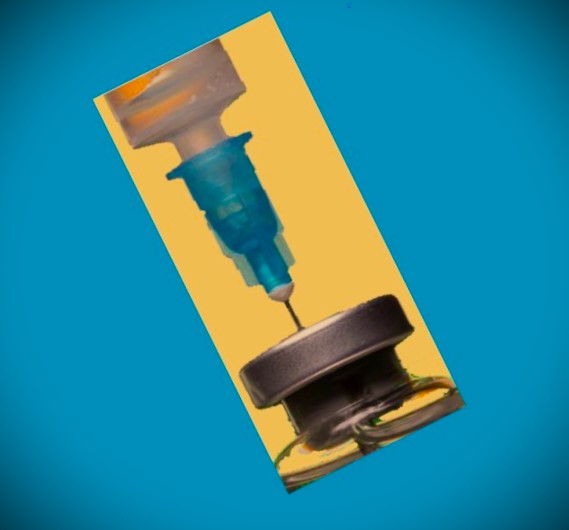Japanese Fever Vaccine
Japanese fever is caused by a virus named Japanese encephalitis (JE), spread by a mosquito bite (vector-transmitted virus), leading to encephalitis, the inflammation of the brain. It can be a very dangerous disease, notably among children. The protective antibodies that are developed after the JE vaccination make it the most effective strategy to avoid the disease.
Signs and symptoms
- Mild symptoms are fever and headache
- Initial symptoms in children may be gastrointestinal pain and vomiting
- Severe symptoms include high-grade fever, headache, stiffness in the neck, disorientation, coma, seizures, spastic paralysis and eventually death (occurs in 0.4% of patients only).
Fatality rate
- The fatality rate is a maximum 30% with disease symptoms. 20-30% may suffer from behavioural or neurological sequelae such as paralysis, inability to speak, or recurrent seizures.
- It has been reported that about 1 in 4 patients with JE encephalitis die and up to half the survivors present with permanent disabilities.
Incubation Period
It is between 14-41 days.
Treatment of Japanese fever
As such, there is no treatment. Symptomatic treatment is given to stabilize the patient.
Who Should Get Vaccinated for Japanese fever/ Japanese encephalitis?
The JE vaccine is recommended for
• Who has an immigration plan or lives in a country affected by Japanese encephalitis.
• Staying in a country that has the chance of continuing with JE throughout your stay there (probably a month or more).
• Periodic travelers to the areas where Japanese encephalitis happens.
• Biological laboratory personnel employing precautions to stop direct contact will likely become close to Japanese encephalitis virus infection.
Vaccine Eligibility
The JE vaccine is thus permitted for individuals aged 2 months and beyond. In most cases, this vaccine is highly recommended to those who want to live in or visit JE endemic areas for a longer duration, more than a month or more, or to frequent visitors to such countries.
Vaccination Schedule
The vaccine is given as a double dose, once with a second shot. A booster dose after the year should be necessary for those still at risk.
Risk Factors
The susceptibility of JE is minor to a regular traveler but exceptional if someone lives in an area where the disease is common or spends prolonged time there.
Prevention
The most effective approach in avoiding JE is to escape mosquito bites. Furthermore, the vaccine is prescribed to laboratory staff working with the JE virus at a high risk of acquiring the disease.
Contraindications
- Pregnant women should usually not get the JE vaccine
- In case of any allergic reaction after a previous dose of JE vaccine or has any severe, life-threatening allergies.
Vaccine Details in America
• IXIARO: The single IV vaccine is approved in the United States.
• IXIARO should be administered as a two-dose series, 28 days apart. In the case of people aged 18 to 65 years, they can wait for 7 days and get the first dose at early as possible.
• The JE vaccine is safe and well tolerated overall. Nonetheless, in other vaccine cases also, there can be side effects. These are commonly minor and temporary, indicating local pain, redness, swelling, or a headache and may include weakness and muscle aches.

Japanese Fever/Japanese Encephalitis Vaccination in India
Several Japanese Encephalitis vaccines are available in India, including.
- SA 14-14-2 (live, weakened virus): This is, in fact, the keystone of the national immunization program for the infant population in disease transmission hotspot regions. It is given in 2 doses; administered at 9-month and 16-24 month intervals.
- JEEV (inactivated virus): This option is a 2-dose administration for children above one year with an interval of at least four weeks between doses.
- JENVAC (inactivated virus): It is a single-shot vaccine developed by Bharat Biotech, effective for those of 1 year old.
Routine vs Travel Vaccination:
- The government of India suggests JE vaccination for children living in endemic areas with at least 180 districts at risk of contracting JE.
- JE vaccination is recommended for travelers visiting high-risk rural areas, including prolonged stays of more than four weeks and exposure to vectors during the transmission season.
Cost of Japanese fever vaccination
The price of the Japanese Encephalitis vaccine in India is variable and matched by the producer’s belonging, facility, and place of treatment. Here is a general idea:
- Vaccine Cost: The said vaccine usually comes at the price of ₹400-₹550, which is almost $5-$7 USD. Such include JENVAC and JEEV brands.
- Consultation Fee: Vaccination might include a regular doctor’s consultation charge before starting the procedure. The charge may vary from 700-1300 rupees(approx. 9-17 USD).
- Total cost: including the vaccine and consultation, it is expected to pay between ₹1100-₹1850 (approximately $14-$24 USD) for the entire process.
Additional Notes:
- For the children in endemic areas, free vaccination or subsidized rate may be offered by the government of India.
- This prize is an estimate only, and the actual cost might vary.
Age and dose for Japanese fever Vaccination in India
Depending on the program, there are two main scenarios for JE vaccination in India,
- National Immunization Program (NIP):
- Under the NIP, it targets those children residing in endemic areas (around 180 districts).
- The JE vaccine is included as part of the regular immunization schedule.
- Children receive the SA 14-14-2 vaccine following a 2-dose schedule:
- 1st Dose: It is administered at 9 months of age.
- 2nd Dose: It is administered along with the DPT booster dose between 16-24 months of age.
- Travel Vaccination:
- JE vaccination is recommended, especially during the JE season (rainy season), if people are planning to travel to rural areas with a high JE risk for extended periods (over 4 weeks).
- Generally, no age restrictions are applicable for travel vaccination, though consulting a doctor is a better choice for the recommendations.
- Adult Vaccination: Recently, in the endemic districts of India, the government announced the introduction of one dose of JE vaccine for adults.
Japanese encephalitis in India after 1 year of age
Japanese encephalitis vaccination is likely in India after 1 year of age. As such, there is no upper age limit. Consulting a doctor is advisable to assess health status for vaccination.
- Priority is given to children living in endemic areas (around 180 districts), Under this UIP program.
- The SA 14-14-2 vaccine is administered at 9 months and 16-24 months in 2 doses.
- If you miss any dose within the program window (after 1 year), try to consult a doctor about the alternative options.
Travel vaccination is perfect for anybody above 1 year old planning to travel to high-risk areas for extended periods (over 4 weeks).
Numerous inactivated Japanese encephalitis vaccines are made available in India for this purpose. The names of these vaccines are:
- JEEV (inactivated virus) is given in two doses, at least 4 weeks apart.
- JENVAC (inactivated virus): a single-dose vaccination for Japanese fever developed by Bharat Biotech.
Countries at risk of Japanese encephalitis/ Japanese fever
Various parts of the following countries are susceptible
- Southeast Asia (such as Thailand, Malaysia and Vietnam)
- India
- China
- Japan
- Indonesia
- South Africa
It spreads in a few parts of these countries, not the whole country.
Conclusion
Care is a must, and vaccinations for Japanese fever must be taken. Post-disease conditions are hazardous and affect the quality of life of patients and relatives.
Also Read: Indian cervical cancer vaccine or HPV vaccine
Disclaimer: The information is based on the official websites.

